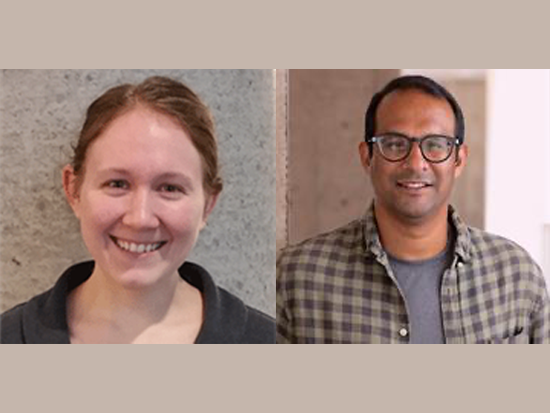As part of the Department of Genetics' roundtable discussion series, two faculty members will share insights into their research, the inspirations behind their work, and the potential impact of their findings on the future. The discussion features assistant professors Coral Wille, Ph.D., and Arko Sen, Ph.D.
Can you share your research focus within the department? Specifically, how long have you been pursuing this work, and what do you hope your research will ultimately achieve?
Wille: My main research focus is how cellular identity is established and maintained. Every cell of the body has a nearly identical genome, yet there is an incredibly rich diversity of functions. Cell fate is therefore controlled by differential pattens of gene usage. Genes are activated or silenced by reversible signals on top of the genome called the "epigenome". I have investigated how the epigenome dictates cell fate using early developmental and cancer models since my graduate education.
Sen: My laboratory works on understanding the role of non-coding genetic variations in regulating gene expression variation across populations and human diseases. I have been working on this topic for the last 6 years. I hope to determine the contribution of non-coding genomes to disease risk for neurodevelopmental disorders like neuroblastoma and heritable disorders like AD and Dementia.
What role does collaboration play in your work? Could you discuss some of the partnerships or team efforts involved in your research, along with any challenges you’ve encountered in your specific area of study?
Wille: I have established several collaborations already in my short time at UAB. Within the Department of Genetics, I have a new project with Dr. Arko Sen to interrogate how the efficiency of gene expression regulates higher order genome interactions. We are also interested in why cells exit from normal cell fate trajectories during cancer formation. Across the UAB scientific community, my lab has been a resource to teach others endogenous genome engineering.
Sen: Collaboration allows me to expand my research projects into areas in which I have limited experience. For example, I currently have an active collaboration with the Wille Lab, where we are examining how the efficiency of gene expression regulates higher-order chromatin structures.
How do you engage with the public regarding your research? What strategies do you use to make your work accessible and understandable, and how do you raise awareness about its impact on improving human health?
Wille: Our goal is always to publish our work in open access journals so that primary data is immediately accessible to the public. Next year, I will co-direct the Genome Structure and Organization course (GGSC 310) using examples directly from my lab to expose undergraduate students to cutting-edge research. I also host undergraduate students in my lab like from the SURE-GM program to reach beyond UAB.
Sen: We will publish our project's research findings in peer-reviewed scientific journals and pay for open access to ensure that our research reaches the broadest audience, regardless of their ability to pay for subscriptions. Additionally, we will present our work at scientific conferences and provide press releases to maximize visibility.
What inspired your interest in genetics? Can you share what initially drew you to your specific field of study and what continues to motivate you today?
Wille: I like the challenge of tacking complex questions and the epigenome is essentially a big data problem. It is exciting time to focus on epigenetic regulation of cell fate as it is increasing being decoded with emerging molecular and computational tools.
Sen: Recent advancements in genomics technologies make it possible to inexpensively sequence hundreds or thousands of genomes and identify genetic variants. Yet, the challenge persists in analyzing and interpreting the functional impacts of these variants on human traits and disease susceptibility. Addressing this remains a crucial challenge in genomics, and I am motivated to contribute to advancing this field.
How do you envision your research at UAB making a difference? Beyond contributing to our understanding of human health, how do you hope your work will improve people’s lives?
Wille: Determining how gene expression is normally fine-tuned is essential for understanding how fate goes awry during disease. At a fundamental level, the specification of numerous cell fates within a single organism has remained an enduring mystery and important question to address.
Sen: My research will help identify genetic variants that contribute to early-life neurodevelopmental disorders and can predict the risk of developing heritable disorders in late life, such as AD and dementia. We will evaluate how their contribution can vary based on population structures and the presence of other comorbidities.